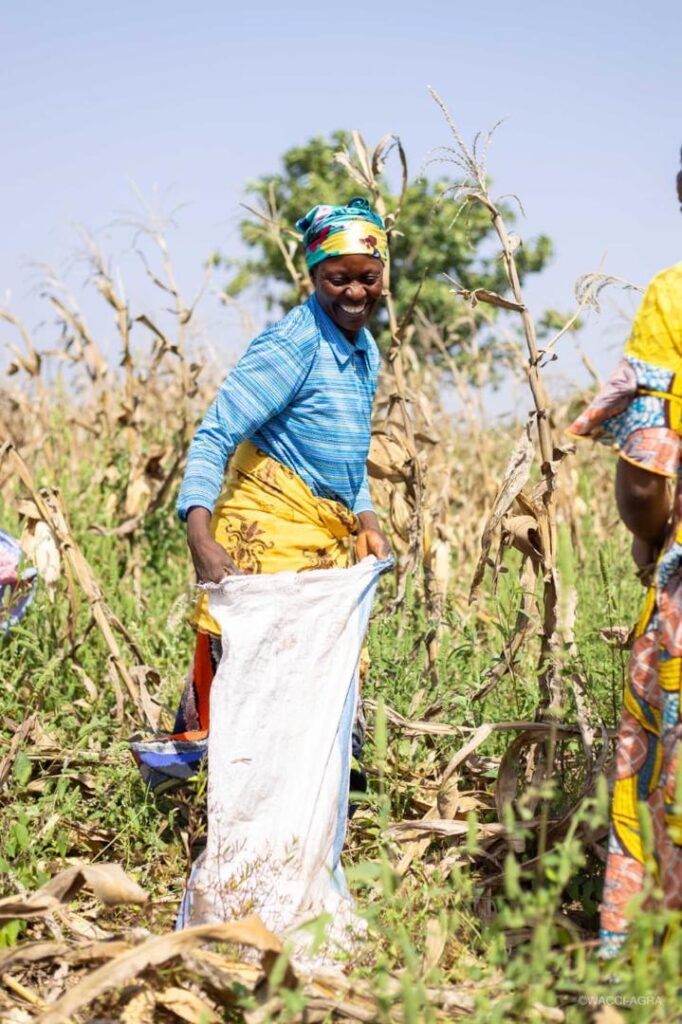The Founding Director, West Africa Centre for Crop Improvement (WACCI) at University of Ghana, Africa Food Prize Laureate, 2022 and GCHERA World Agriculture Prize Laureate, 2018, Professor Eric Yirenkyi Danquah has revealed that globally nearly 830 million people still go to bed hungry.
According to him, this development is a global tragedy adding that Africa is the most affected continent despite being a ground to 60% of the world’s arable land with the youngest population in the world.
Prof. Danquah made this known at 2025 World Hunger Day lecture where he indicated that, food is not just a basic need, it is a fundamental right and hunger is not a crisis of potential but rather of priorities.
He said In Africa, climate shocks, fragile food systems, and underinvestment in science continue to hold back our collective progress.
Prof. added that, the 2023 CAADP Biennial Review concluded that no African country is on track to meet the targets of the Malabo Declaration. Across the continent, millions face chronic food insecurity—and in a painful paradox, many of them are farmers, the very people whose hands till the soil to feed us all.
“How can this be, when, as Ghana’s Founding President Kwame Nkrumah once said, it is within the power of science and technology “to make even the Sahara bloom with verdant vegetation”? The answer lies in the uncomfortable truth: global rhetoric has far outpaced global responsibility.”
He indicated that many foundations profess that every life has equal value. Yet when it comes to research funding, the reality tells a different story. For over five decades, international agricultural research has been prioritized—particularly through generous and sustained investments in the CGIAR system. While the CGIAR has made important contributions to agricultural science, the continued neglect of national research institutions and universities in Africa has weakened the very ecosystems needed to translate global discoveries into local solutions.
“We must ask: if this paradigm of funding—heavily skewed toward international centres—could shift the realities on the ground, should we not have seen more transformative progress by now? The science generated at the global level must be met with equal investment in national capacity to innovate, adapt, and scale. Without strong local institutions, even the best research will struggle to take root,” he stated.
Speaking on the theme; ‘Sowing Resilience: From the Roots of Africa to a World Without Hunger’ stated that this is a call not just for equity in words, but for justice in action.
He said at the West Africa Centre for Crop Improvement (WACCI), “we have trained over 120 PhD plant breeders and 60 seed scientists across 19 African nations. Together, they have contributed to the release of more than 280 improved crop varieties—resilient maize, cowpea, groundnut, rice, and tomatoes that are transforming the lives of smallholder farmers.”
Prof. said this is what African-led science looks like: solving African problems with African talent. It is proof that agency, not aid, is the answer. Yet even this modest success has come not from systemic support, but from fighting against the current.
This World Hunger Day, I offer a direct appeal—one rooted in urgency, humility, and hope.
To African Governments: the Academician, indicated that, the African Union’s Malabo Declaration urges Member States to allocate at least 1% of GDP to research and development. This commitment must be fulfilled. It is not a luxury—it is a necessity. Science-led agricultural transformation is the only sustainable path to ending hunger, creating jobs, and building resilient economies.

To global foundations and development partners: Many of you have helped shape global progress with your generous investments and principled declarations. But today, we ask for something more: that you match your values with bold, sustained support for African research institutions and scientists. This is not charity—it is smart partnership. It is shared survival. It is shared success. And let me pause, with cautious optimism, to reflect on Ghana. A new government, barely five months in office, is taking bold early steps to operationalize the Ghana National Research Fund—a long-awaited initiative.
“If sustained and well-resourced, this Fund could unlock a new era of agricultural transformation. It has the potential to empower our scientists to develop climate-smart innovations, bolster seed systems, enhance productivity, and reverse the brain drain. It can nurture the next generation of agricultural leaders and help make food security a reality—not just a goal.
“We must ensure that the National Research Fund becomes a strategic engine, not a symbolic gesture. That it catalyzes a future where knowledge drives policy, and science is the backbone of national development.
“If such bold national commitments are replicated across Africa and matched by strategic public-public and public-private partnerships to drive food systems transformation, then—just perhaps—we may turn the tide on this silent tsunami of hunger and malnutrition. Africa can feed itself. And in doing so, it can nourish the world. ”
Let us not fall into Einstein’s trap—repeating the same approaches and expecting different outcomes. Let us instead reimagine food systems that are climate-smart, science-led, community-driven, and globally competitive. A continent where hunger is no longer tolerated. A future where resilience is not a dream, but our daily practice.
“We must harness the power of emerging technologies, including artificial intelligence, to enhance decision-making, optimize resource use, and accelerate innovation. At the same time, food systems transformation must be inclusive ensuring that women, youth, and marginalized communities are not just beneficiaries, but leaders of change.”
“So today, let us move from declarations to delivery, promises to policies, handouts to harvests and let us honour the quiet heroes—our Hunger Fighters—who, against all odds, continue to sow seeds of hope.”


